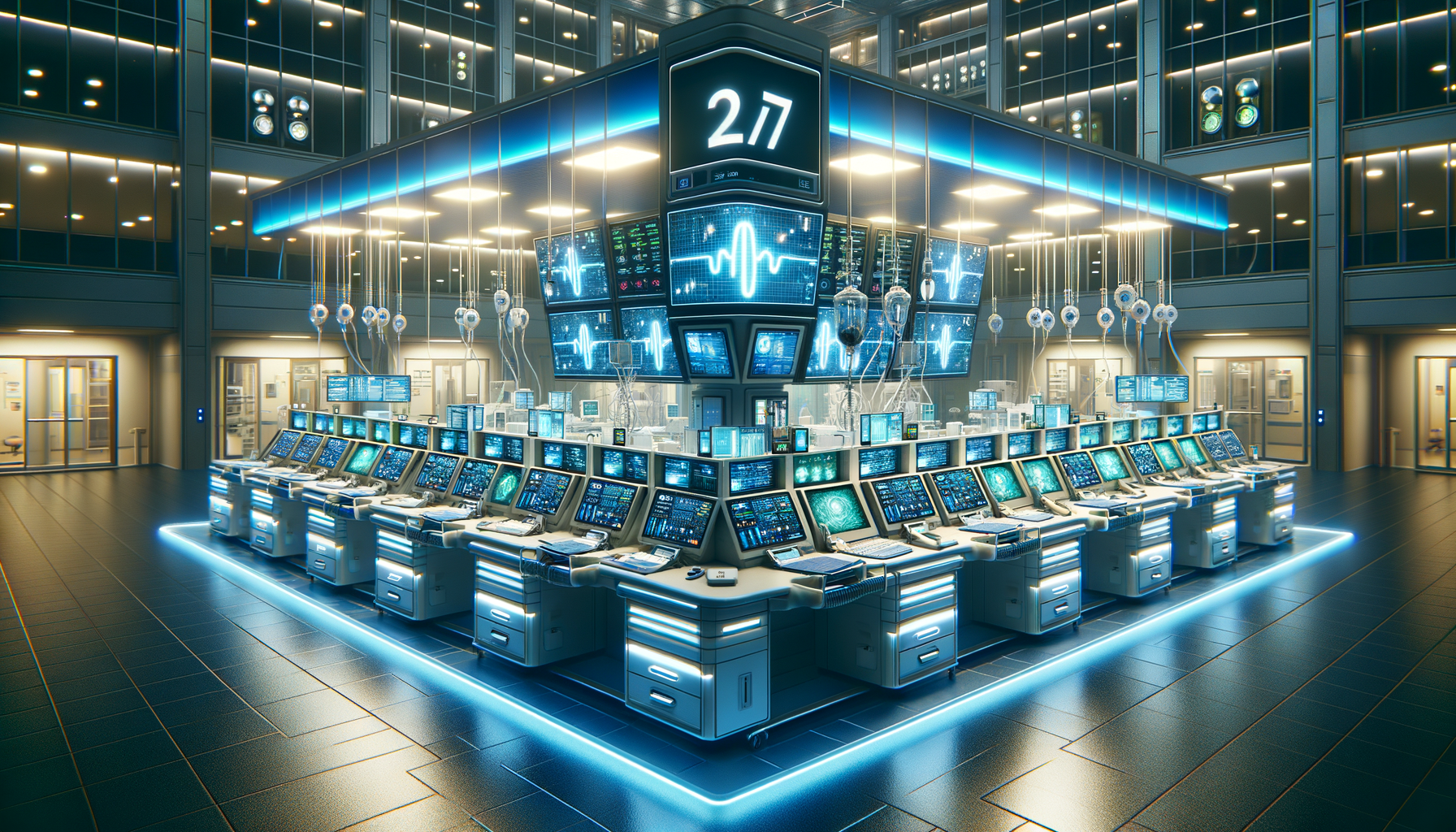The Role of 24/7 Nursing Care
In the modern healthcare landscape, the demand for round-the-clock nursing services has become increasingly significant. 24/7 nursing care provides continuous support to individuals who require constant medical attention, ensuring that patients receive the care they need at any time of the day or night. This type of care is particularly essential for patients with chronic illnesses, those recovering from surgery, or individuals with disabilities who need ongoing assistance.
The primary role of 24/7 nursing care is to offer a seamless healthcare experience. Nurses working in this capacity are trained to handle a variety of medical situations, from administering medications to monitoring vital signs and providing emergency interventions. This constant availability ensures that any sudden changes in a patient’s condition are promptly addressed, reducing the risk of complications and improving overall health outcomes.
Additionally, 24/7 nursing care helps to alleviate the burden on family members who may struggle to provide adequate care on their own. By having professional nurses available at all times, families can rest assured that their loved ones are in capable hands, allowing them to focus on other responsibilities or simply take a much-needed break.
Benefits of Continuous Nursing Services
The benefits of 24/7 nursing services extend beyond immediate medical care. One of the most significant advantages is the peace of mind it offers to both patients and their families. Knowing that a qualified nurse is always available to respond to emergencies or provide necessary treatments can significantly reduce stress and anxiety.
Moreover, continuous nursing services contribute to better health management. Nurses can closely monitor a patient’s condition, ensuring that any changes are documented and addressed swiftly. This level of attention can lead to more accurate diagnoses and more effective treatment plans, ultimately enhancing the quality of life for patients.
Another key benefit is the personalized care that 24/7 nursing services provide. Nurses develop strong relationships with their patients, understanding their unique needs and preferences. This tailored approach ensures that care is not only medically effective but also aligns with the patient’s lifestyle and personal comfort.
Challenges and Solutions in 24/7 Nursing Care
While 24/7 nursing care offers numerous benefits, it also presents certain challenges. One of the primary issues is the potential for nurse burnout due to the demanding nature of round-the-clock shifts. To address this, healthcare facilities must implement strategies to support their nursing staff, such as rotating shifts, providing adequate rest periods, and offering mental health resources.
Another challenge is the cost associated with continuous care. Ensuring that patients have access to constant nursing support can be expensive, and not all families can afford such services. However, some solutions include exploring insurance coverage options, government assistance programs, and community resources that may help offset costs.
Additionally, maintaining a high standard of care is crucial. Continuous training and professional development opportunities for nurses can ensure they are equipped with the latest knowledge and skills to provide exceptional care. This commitment to excellence not only benefits patients but also enhances job satisfaction among nurses.
Technological Advancements in Nursing Care
Technology plays a pivotal role in enhancing the effectiveness of 24/7 nursing care. Innovations such as telehealth services, electronic health records, and remote monitoring devices have transformed how nurses deliver care. These tools allow for real-time communication and data sharing, enabling nurses to make informed decisions quickly.
Telehealth, for instance, provides patients with access to medical consultations without the need for physical travel, which is particularly beneficial for those with mobility issues or living in remote areas. Remote monitoring devices, on the other hand, allow nurses to track vital signs and other health indicators from a distance, ensuring timely interventions when necessary.
Furthermore, electronic health records streamline the documentation process, making it easier for nurses to access and update patient information. This efficiency not only saves time but also reduces the likelihood of errors, contributing to safer and more effective patient care.
The Future of 24/7 Nursing Care
As the healthcare industry continues to evolve, the future of 24/7 nursing care looks promising. With the integration of advanced technologies and a growing emphasis on personalized care, nursing services are set to become even more effective and accessible.
One anticipated development is the increased use of artificial intelligence (AI) in nursing care. AI can assist with tasks such as data analysis, patient monitoring, and even predicting potential health issues before they arise. This proactive approach can lead to earlier interventions and better health outcomes.
Additionally, there is a growing trend towards home-based nursing care, allowing patients to receive professional medical support in the comfort of their own homes. This shift not only enhances patient satisfaction but also reduces the strain on healthcare facilities, making it a sustainable model for the future.
Overall, the future of 24/7 nursing care is likely to be characterized by greater efficiency, improved patient experiences, and enhanced health outcomes, driven by continuous innovation and a commitment to excellence in healthcare delivery.



Leave a Reply